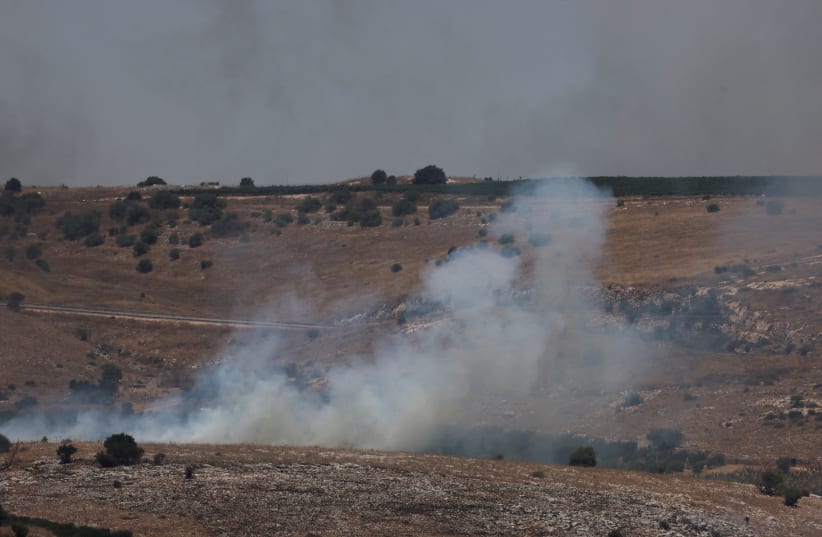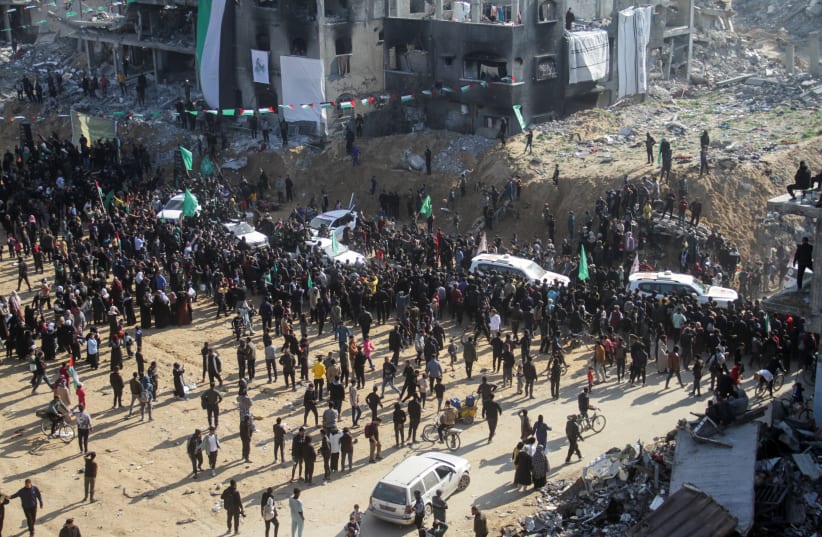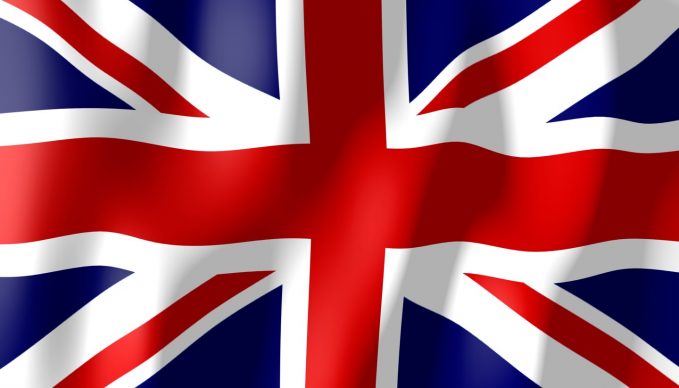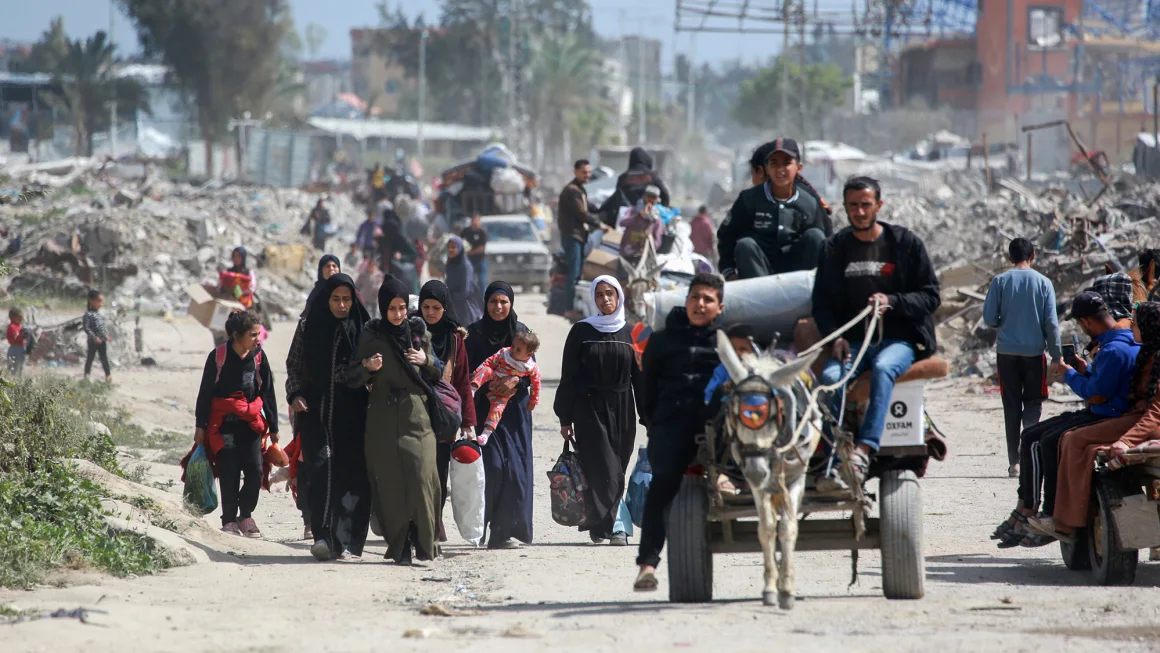Foreign
US, France scramble to stop Hezbollah attack sparking larger Lebanon war

Netanyahu held a security cabinet meeting late Sunday night at the Defense Ministry headquarters in Tel Aviv, following security consultations.

The United States and France scrambled on Sunday to prevent the sparking of a third Lebanon war after the Hezbollah attack that killed 12 Druze children in the Golan Heights village of Majdal Shams on Saturday. Israel stood poised to respond militarily.

“We have been in continuous discussions with Israeli and Lebanese counterparts since the horrific attack yesterday,” US National Security Council spokesperson Adriane Watson stated.
The United States “is working on a diplomatic solution along the Blue Line that will end all attacks once and for all and allow citizens on both sides of the border to return safely to their homes.”
French President Emmanuel Macron spoke with both Prime Ministers, Benjamin Netanyahu of Israel and Najib Makati of Lebanon.
Diplomats have urged Israel to constrain its response to avert an all-out war between the two countries. Macron told Netanyahu that France was “fully committed to doing everything possible to avoid a new escalation in the region by sending messages to all parties to the conflict,” the Elyse said.
“He also reiterated the need to reach a diplomatic solution to the issue of the Blue Line, based on [United Nations Security Council] Resolution 1701 and his determination to contribute to it.”
The Lebanese government has asked the US to urge restraint from Israel, Lebanon’s foreign minister Abdallah Bou Habib told Reuters. Bou Habib said the US had asked Lebanon’s government to pass on a message to Hezbollah to show restraint as well.
Defense Minister Yoav Gallant spoke of the importance of a military response when he visited Majdal Sham and the northern command earlier in the day.
“I was shown the plans for a possible response” to Saturday’s attack against the village, Gallant said. “Hezbollah, an Iranian proxy, was behind the attack, and they cannot hide it despite their ridiculous denials. They fired [at Israel], and they will bear a heavy price for their actions,” he stated.
Netanyahu held a security cabinet meeting late Sunday night at the Defense Ministry headquarters in Tel Aviv, following security consultations. He arrived there immediately upon landing at Ben-Gurion Airport, after spending a week in Washington. In an unusual manner that highlighted the emergency nature of the situation, he departed for Israel prior to the end of Shabbat.
US Secretary of State Antony Blinken told reporters in Tokyo on Sunday that “It’s so important that we help diffuse that conflict” along the northern border, “not only prevented it from spreading but to diffuse it.”
He added, “We’re determined to do that.”
The attack comes after an intense cross-border war between the IDF and the Iranian proxy terrorist group Hezbollah, which is entrenched in southern Lebanon along Israel’s northern border and, since October 7, has run concurrent attacks to the Gaza war. Israel, at this point, is fighting three Iranian proxy groups at once: Hamas in Gaza, Hezbollah in Lebanon, and the Houthis in Yemen.
Iran’s foreign ministry warned Israel on Sunday against what it called any new adventure in Lebanon, as it repeated Hezbollah’s disclaimer that the terrorist group was not behind the attack.
Syria’s foreign ministry said it held Israel “fully responsible for this dangerous escalation in the region” and said its accusations against Hezbollah were false.
Israel, in turn, provided exact details about who launched the attack and the Iranian-made Falaq-1 rocket that exploded in Majdal Shams; it was Hezbollah’s deadliest strike against Israel in the last nine months.
Blinken said there was “every indication is that indeed the rockets were from Hezbollah. The US, he stated, “stands by Israel’s right to defend its citizens from terrorist attacks.”
Gaza ceasefire will lead into Lebanon border ceasefire – Blinken
A Gaza ceasefire, he stressed, is the best way to diffuse Israeli-Hezbollah violence. “One of the reasons that we’re continuing to work so hard for ceasefire in Gaza is… so that we can really unlock an opportunity to bring calm, lasting calm, across the between Israel and Lebanon,” Blinken said.
“We’re determined to bring the Gaza conflict to a close. It’s gone on for far too long. It’s cost far too many lives. We want to see Israelis; we want to see Palestinians. We want to see Lebanese live free from the threat of conflict and violence,” he added.
US Senate Majority Leader Chuck Schumer told CBS’s Face the Nation on Sunday that “Israel has every right to defend itself against Hezbollah like they do against Hamas.”
Lebanon’s Middle East Airlines (MEA) said on Sunday it had delayed the departures of some incoming flights set to land in Beirut overnight to arrive on Monday morning instead.
MEA said in a statement that six flights incoming to Beirut overnight from London, Copenhagen, and four other cities in the Middle East would be delayed so that they would instead take off on Monday morning.
MEA chairman Mohamad El-Hout told local broadcaster Al-Jadeed that the flight changes at Beirut’s Rafik Hariri International Airport were due to “insurance risks.”
“We’re not afraid that the airport will be hit, nor do we have any information in that regard. If we were scared, we wouldn’t have left any flights (operating),” he said.
Reuters contributed to this report

Foreign
Hamas claims spokesperson killed in Israeli strike on northern Gaza

Earlier this week, Israel killed Ismail Barhoum, a member of Hamas’ political office, and Salah al-Bardaweel, another senior leader.

Hamas spokesman Abdel Latif al-Qanou was allegedly killed in an Israeli airstrike on northern Gaza, Hamas-affiliated news agency Shehab reported on Wednesday night.

Al-Qanoa was one of Hamas’s most prominent spokesmen in Gaza, and while he avoided media appearances during the months of fighting, he gave multiple interviews to Arab news channels after the ceasefire.
Al-Qanoua was killed when his tent was targeted in Jabaliya, the Hamas-run Al-Aqsa television reported. The same strike wounded several people, medical sources said.
Earlier this week, Israel killed Ismail Barhoum, a member of Hamas’ political office, and Salah al-Bardaweel, another senior leader.
Both Bardaweel and Barhoum were members of the 20-member Hamas decision-making body, the political office, 11 of whom have been killed since the start of the war in late 2023, according to Hamas sources.
Tents for Palestinians seeking refuge are set up on the grounds of a United Nations Relief and Works Agency for Palestine Refugees (UNRWA) centre in Khan Yunis in the southern Gaza Strip on October 19, 2023, amid the ongoing battles between Israel and the Palestinian group Hamas (credit: MAHMUD HAMS/AFP via Getty Images)
The IDF has yet to comment on the alleged elimination.
Increased IDF pressure in the Gaza Strip
Since fighting in Gaza was renewed at the beginning of last week, the IDF has killed 150 terrorists, including 10 top Hamas officials, The Jerusalem Post learned Tuesday.
In certain areas, the military has entered a full kilometer into Gaza, such as around the Nitzanim Corridor in central Gaza.
In addition to central Gaza, Beit Lahia, Beit Hanoun, parts of Khan Yunis, Shaboura, and Tel Sultan, the IDF has been evacuating and moving into Jabaliya.

Foreign
Dead Nigerians, Africans, others without will may lose unclaimed estates in UK

Hundreds of unclaimed estates reveal untold stories of African migration, wealth, and family ties left behind.
Thousands of people die every year in the United Kingdom without leaving a will or identifying next of kin, and among them are many Nigerians and other Africans whose estates—ranging from property to savings—remain unclaimed.
The UK government’s latest list of unclaimed estates, updated daily, includes over 170 entries connected to African-born individuals, with Nigerians making up a significant portion of the cases.

A Legacy Lost
For many migrants, the UK became a home away from home—a land of opportunity where they built wealth, purchased property, and created a life.

However, the absence of a will often results in their assets being classified as “bona vacantia” (ownerless goods), leaving them to the custody of the Crown.
Families back in Africa are frequently unaware of these estates, leading to a permanent loss of assets.
Cases like that of Adenike Adebiyi, who passed away in Hackney, London, in 2004, or Solomon Adekanmibi, who died in Colchester, Essex, in 2021, highlight the consequences of dying intestate.
With no identified next of kin or missing documentation, their estates remain unclaimed, and their legacies risk being forgotten.
Why It Matters
This phenomenon underscores a critical issue: many African families are unaware of their relatives’ financial situations abroad.
Migration often disrupts communication, and without clear documentation, the wealth built overseas remains beyond reach.
The loss isn’t just financial—it’s deeply cultural and emotional. Unclaimed estates represent untold family histories, connections, and the struggles of migrants who built their lives in the diaspora.
The Challenges
Lack of Awareness:
Most families in Nigeria and other African countries are unaware of their relatives’ estates abroad or how to access them.
Genealogical Gaps:
The information provided in official records is often incomplete. For example, many entries in the UK unclaimed estates list lack detailed family history or next-of-kin information.
Cultural Hesitations:
In many African cultures, discussing death and wills is considered taboo, leading to reluctance in planning for asset distribution.
A Call to Action
African governments, community organizations, and legal professionals need to raise awareness about this issue.
Here’s what can be done:
Encouraging Will Writing: Migrants in the diaspora should be educated about the importance of drafting wills to protect their assets.
Genealogical Support: Families in Africa can be assisted in tracing unclaimed estates through local or international partnerships.
Public Awareness Campaigns: Social and traditional media can highlight the importance of estate planning and share resources for families.
How to Check the List
The UK government maintains a public Unclaimed Estates List that is updated daily.
Families can search the list by name, place of birth, or other identifiers to check for potential claims.
Final Thoughts
For many Nigerians and Africans in the UK, their unclaimed estates represent more than just wealth—it’s a story of migration, resilience, and identity.
By addressing this growing issue, families can reclaim their heritage, and the legacy of those who journeyed to the diaspora need not be forgotten.
Here is the latest daily update as of March 24, 2025. Check the list

Foreign
Israel approves controversial proposal to facilitate emigration of Palestinians from Gaza

Israel’s security cabinet has approved a controversial proposal to facilitate Palestinian emigration from Gaza, a move critics warn could amount to ethnic cleansing.

Israeli Finance Minister Bezalel Smotrich on Sunday said the security cabinet approved the proposal by Defense Minister Israel Katz to organize “a voluntary transfer for Gaza residents who express interest in moving to third countries, in accordance with Israeli and international law, and following the vision of US President Donald Trump.”

The decision marks a remarkable endorsement of a plan once considered a far-right fantasy – and comes despite the prime minister’s earlier pledge not to permanently displace Gaza’s civilian population.
Critics have said that any mass displacement of Gazans in the midst of a devastating war would amount to ethnic cleansing, an act associated with war crimes and crimes against humanity under international law. Israeli officials have countered that emigration would be voluntary and in line with international legal standards.
But aid groups argue that Israel’s war has made life in Gaza nearly impossible. Martin Griffiths, the United Nations’ top emergency relief official, has called the enclave “uninhabitable,” saying its people are “witnessing daily threats to their very existence.”
The Israeli approval would establish an administration within the defense ministry “to prepare and facilitate the safe and controlled movement of Gaza residents who wish to voluntarily move to third countries,” according to a statement from the defense ministry.
Its work would include “establishing movement routes, pedestrian checks at designated crossings in the Gaza Strip,” and infrastructure to enable people to leave.
Israeli officials have presented the plan as a fulfillment of a desire by Trump to take over Gaza, expel its Palestinian population to neighboring countries and turn it into a Middle Eastern “riviera.”
The Palestinian Authority’s Minister of State for Foreign Affairs Varsen Aghabekian Shaheen told CNN’s Becky Anderson last month that Palestinians “are steadfast to stay in their land and will not move.”
Trump’s ‘vision’
Katz said Sunday that Israel is using “all means to implement the vision of the US president,” according to the defense ministry statement.
This month, Trump appeared to backtrack on his comments about displacing Palestinians, telling reporters that “nobody is expelling any Palestinians.” Steve Witkoff, the US special envoy to the Middle East, said last month that the US initiative to rebuild Gaza won’t necessarily amount to an “eviction plan” and that it was designed to “shake up everybody’s thinking.”
Last year, Israeli Prime Minister Benjamin Netanyahu said his country had no intention to displace Palestinians or occupy Gaza.
Related articleTrump says ‘nobody is expelling Palestinians,’ weeks after saying they should be moved to Arab states
“I want to make a few points absolutely clear: Israel has no intention of permanently occupying Gaza or displacing its civilian population,” Netanyahu said in a video statement in January 2024.
Trump’s proposal has, however, brought the idea further into the mainstream, with Israeli politicians now openly discussing mass emigration of Gazans as a solution to the war. And Katz last week said that Israel may maintain a permanent presence in the enclave.
Israeli rights group Peace Now criticized the plan, saying “the establishment of the administration to expel Palestinians from Gaza is one of the stupidest moves by a government that has lost all direction and logical thinking.”
The prospect has also drawn sharp rebuke from Arab leaders, especially Egypt and Jordan, who would be expected to absorb the large number of expelled Palestinians. Experts have also warned that displacing Palestinians would further destabilize the region and threaten the security of neighboring states.
Smotrich said Sunday that the security cabinet also approved the expansion of Jewish settlements in the occupied West Bank, noting that 13 areas in the West Bank would be split from existing settlements and would be recognized as independent settlements.
“Instead of hiding and apologizing – we are raising the flag, building, and settling. This is another important step on the path to actual sovereignty in Judea and Samaria,” he said, using the name by which Israelis refer to the West Bank.
The Yesha Council, an umbrella body representing Jewish settlements, said that as of January 2024, there were 150 settlements in the West Bank.
It said that the decision exposes a “long-standing lie that (Israel) does not establish new settlements, but only ‘neighborhoods’ of existing settlements” and that it is “another nail in the coffin that the Government of Israel is preparing for the only chance for a future of peace and security.”
A statement sent by Smotrich’s office said the move comes against “the backdrop of the approval of tens of thousands of housing units in Judea and Samaria and represents another significant step in the process of normalizing and regulating the settlement.”
Smotrich and other right-wing ministers have been pushing an aggressive expansion of settlements on the path to declaring Israeli sovereignty over the West Bank, which would be in defiance of international law and UN Security Council resolutions.
Israel says it will maintain ‘permanent’ presence in Gaza unless hostages are freed

-

 News1 week ago
News1 week agoBill to establish National Cashew Production and Research Institute in Kogi passes first reading in Senate
-

 News1 week ago
News1 week agoReport of attack on Wike’s Port Harcourt residence false, misleading – Police
-

 News1 week ago
News1 week agoShehu Sani debunks Governor Uba Sani’s alleged diversion of LG funds, challenges El-Rufai to publicly tender evidence
-

 News1 week ago
News1 week agoPlateau gov’t expresses concern over violence in Shendam LGA, calls for calm
-

 Politics6 days ago
Politics6 days agoOpposition leaders announce coalition to challenge Tinubu in 2027
-

 Interview1 week ago
Interview1 week agoSenators Natasha-Akpabio saga should have been resolved privately – Rev. Mrs Emeribe
-

 Opinion1 week ago
Opinion1 week agoSule Lamido, PDP, and the politics of defection.
-

 Foreign5 days ago
Foreign5 days agoHouthis declare Ben-Gurion Airport ‘no longer safe’ after renewed Gaza fighting



















